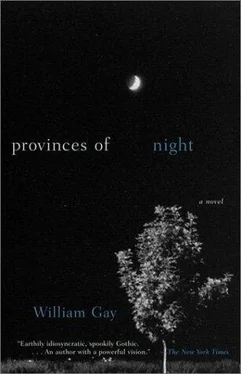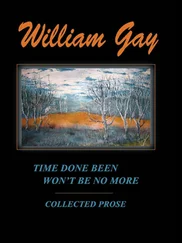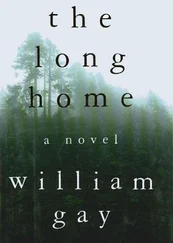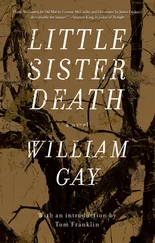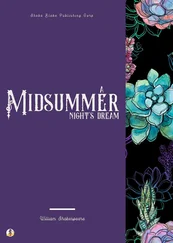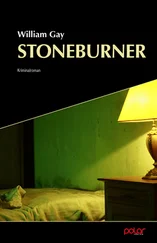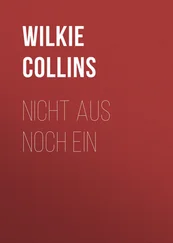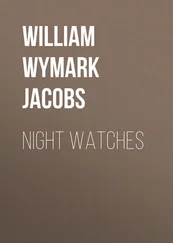Boyd stood up. He brushed dry flakes of tobacco off the front of his dungarees. He looked back the way he’d come. A dim wagon road fading out in the cottonfield. I got to get on, he said. We’ll see you.
You take care of that chap, the old woman said. You need to be worrying about him stead of traipsin around the country.
Boyd raised a hand in farewell, dismissal, and took the first step away from the porch. No one bade him stay.
You do find her tell her I got a cancer, the old man said.
Boyd didn’t say if he would or he wouldn’t. He trudged on woodenly He looked back once and no one had moved, the whole scene fading into a mauve dusk that seemed to be rising out of the earth itself like vapors, bluely transparent, slipping into invisibility now that it could no longer serve him any purpose.

DAPPLED BY the first warm light of the season Fleming Bloodworth lay on his stomach on a shelf of limestone that formed the summit of a bluff overlooking Grinders Creek. He was propped on his elbows watching the road through his father Boyd’s binoculars. This road was red chert and it snaked in and out of sight through the cedars shrouding the bluff. A wooden bridge on concrete pylons crossed the creek downstream from where he was lying and through the powerful binoculars he could discern the heads of the forty-penny spikes the timbers were secured with, trace the grain that ran through the weathered wood.
He was waiting for the mailman. In actuality he was waiting for a lot of things: he was waiting for his father to return from wherever he had gone and for his mother to turn up from wherever she had gone and for himself to decide whether or not he was going back to school. His immediate concern, though, was for the mailman, for the U.S. Mail adhered to a schedule the rest of his life did not. The rest of his life seemed to be in limbo, waiting for one event to take place so that other events would sequence themselves behind it, a recognizable pattern coalesce from swirling chaos.
He had been up and about this day before good light. The day gave promise of being warm, and the remnants of a dream still swirling in his head touched it with portent.
He had dreamed that the mailman brought a check with his name on it, a check from a magazine called Country Gentleman , and he had little doubt that somewhere in the mailman’s sorted box of fertilizer ads and burial plan duns such a check existed, needed only the delivering to bring into his possession a typewriter he had seen in the window of a five-and-dime store in the town of Ackerman’s Field.
Some months back he had come into ownership of a stack of back numbers of this magazine Country Gentleman. He had read them cover to cover and written a story so cynically devised that he did not see how it could fail. This story had everything. It had a love story involving a boy and girl from two feuding families, a collie dog falsely accused of killing sheep, a sentimental resolution wherein the accused dog saves a child from drowning. It was Romeo and Juliet moved to the backwoods with a sheepkilling dog and a flood thrown in for good measure, and it would not have surprised him to learn that his name was being bandied about editorial offices in Atlanta, Georgia, where the magazine was published.
The mailman’s car hove into view in a stretch of road between the cedars and almost immediately it began to honk its horn. The boy scrambled up. He was an habitual joiner of book clubs and requester of catalogs and sample copies of magazines but he couldn’t think of anything he’d sent for that would not fit in a mailbox. Perhaps a check from a magazine required a signature.
He was scrambling down the shale bluffs going tree to tree. All right, all right, he yelled. The mailbox was set up by an enormous poplar tree at the foot of the hill and the mailman’s car had parked before it and continued to honk dementedly until Fleming arrived out of breath at the driver’s side window.
Young Bloodworth, the mailman said. Got a package here for you. He was holding a flat manila envelope and now he scanned the return address. The boy was regarding it with a dull loathing. Country Gentleman , the mailman said. Didn’t know they took to boxin em up like this.
Fleming received the package with some reluctance, stood regarding it balefully as if he did not quite know what to do with it.
That all you got?
That’s it, the mailman said. Your mama ever come back, Fleming?
Thanks for the package, Bloodworth said, turning away toward the hill. The car remained still for a few seconds then the mailman raised a hand and drove away.
Crossing the ditch before the hill began its steep ascent he opened the flap of the envelope. The first thing he saw was his own handwriting, the second a note that had been paperclipped to his manuscript. We regret that we are unable to read handwritten manuscripts , someone in Atlanta had written. All submissions must be typewritten. He threw the manuscript into the ditch and went on up the hill but after a few steps returned and recovered the manila envelope and went on.
To reach this house you came from either of two ways. If you came by the cherted road you left it at the foot of the hill and climbed up through patches of limestone and a grove of cedars where the footpath led. It was an almost vertical ascent and the house came into view by increments, first a green tarpaper roof, hipped from the four corners of the house to a peak in the center, then weathered board walls, a house cobbled up from odds and ends, homemade, as happenstantial as something left by the recession of floodwaters. I reckon it’ll do till we find some-thin better, Boyd had said, but the boy had been six years old then.
If you approached from the rear, came down from the heavily timbered woods, you followed a footpath that in turn followed the spectral shadings of an old wagon road, a ghost of a road, a rumor of a road. This house had been constructed by and for folk for whom a footpath would serve as well, folk who did not acknowledge the invention of the internal combustion engine, to whom the value of the wheel itself was still in question.
The day that had begun with such promise now yawned like an enormous vacuum that he was called upon somehow to fill. He took down a slingblade from the porch and began to cut weeds, clearing the yard then progressing on toward the garden spot, the air full of bits of weeds like anomolaec snow. The day warmed as it progressed and he took off his shirt and resumed work as if he’d rid the world of weeds once and for all.
In the late afternoon he finally put up the slingblade and went into the house. The house was dark and cool, cave like, scarcely lit by the windows. He took up a book and with it a cold cup of the morning’s coffee and went to a chair where light fell through a windowglass and began to read.
The day drew on, was swallowed in dusk, in silence. No bird called, no insect. Life in abeyance, the world itself grinding to a halt, who knew what would follow. Light through the glass grew dim but he read on as if the passage of day into night was of no moment. The world was winding down, and young Bloodworth wound down with it.
NIGHT. Boyd hunkered in a viaduct watching beaded rain swing slant off the concrete lip above him. Through the silver curtain this made he watched the lights of a town wax and wane like something dimly perceived through deep waters. Thunder rolled hollowly across the flat countryside. An inch of dirty water coursed beneath him and his feet were wet. He tried to roll a cigarette but his fingers were wet as well and the paper shredded in his hands. I wouldn’t have this Goddamn country if they boxed it up and sent it somewhere I could use it, he said. If they shoved a deed to it in my shirt pocket. Cars went by with tires sluicing the water, gleaming and newlooking in the rain, stark in the surreal clarity of the lightning, like images that were imprinting themselves behind his eyelids.
Читать дальше
